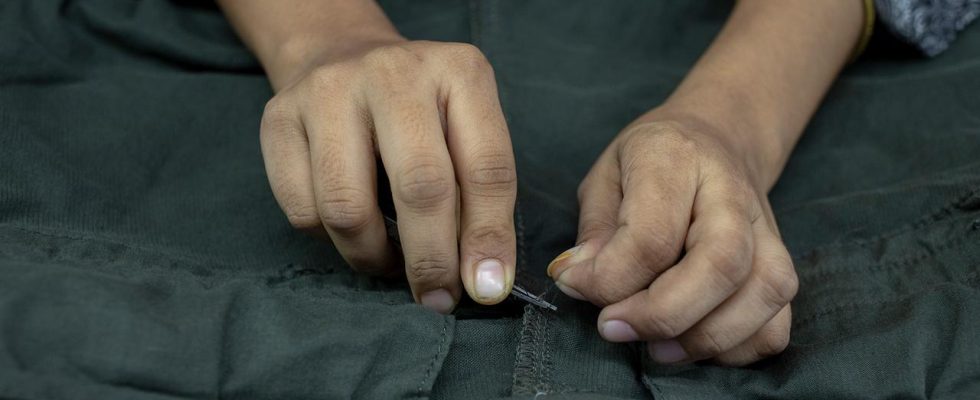According to the Global Slavery Index, significantly more people are being exploited worldwide than five years ago. Industrial nations are also responsible: They benefit from forced labor through supply chains.
Global crises have, according to the recent Global Slavery Index by human rights organization Walk Free exacerbated the problem of modern slavery. “50 million people worldwide live in modern slavery, that’s 10 million more than five years ago,” it said. Responsible for this development is that people are driven out and forced to “unplanned migration”.
According to the report, modern slavery is most widespread in North Korea – followed by Eritrea, Mauritania, Saudi Arabia, Turkey, Tajikistan, the United Arab Emirates, Russia, Afghanistan and Kuwait. Walk Free has created an index for this, which refers to 1000 inhabitants. For North Korea, this is the highest at 104.6. The figures refer to the year 2021.
For the current report, Walk Free defined various exploitative and abusive practices such as forced labour, child labour, people smuggling or forced marriages as forms of modern slavery. According to the information provided, the report is based on data, surveys and risk analyzes from various countries. The determined index value corresponds to an estimated value for the prevalence of modern slavery per 1000 inhabitants of the respective country.
According to the report, people who are forced to leave their homes because of climate change, conflict or intense weather events are particularly at risk of being exploited. A worldwide restriction of women’s rights, as well as the economic and social effects of the corona pandemic, are also aggravating the situation.
USA as the largest importer of “risk products”
Problems are also identified for industrialized and emerging countries, including the USA and China. According to the human rights organization, the G20 must indirectly account for half of all victims of modern slavery via their supply chains. The report addresses the problem of importing goods that are produced in relationships based on coercion or dependence. So-called risk products are imported into the G20 countries every year to the value of 468 billion US dollars (equivalent to around 434 billion euros).
The group of leading industrial and emerging countries (G20) includes 19 countries and the EU. The countries are: Argentina, Australia, Brazil, Canada, China, Germany, France, Great Britain, India, Indonesia, Italy, Japan, Mexico, Russia, Saudi Arabia, South Africa, South Korea, Turkey and the USA.
“The United States was by far the largest importer of risk products,” Walk Free said. According to the activists, among the goods identified, which are often produced in connection with forced labor, are primarily electronics and clothing, but also palm oil and solar cells. According to the report, eleven million people are being exploited in India alone; five million are assumed in China, followed by Russia (1.8 million), Turkey (1.3 million) and the USA (1.1 million).
“Modern slavery permeates every aspect of our society. It’s woven into our clothing, illuminating our electronics and flavoring our food,” Walk Free founding director Grace Forrest said in a statement.
praise for Supply Chain Laws
The human rights organization called for more decisive regulatory intervention in supply chains to prevent exploitation. “In recent years, Australia, Canada, Germany and Norway have enacted legislation to hold companies and governments accountable for exploitation in global supply chains.” This is a step in the right direction, but is far from enough.
The organization also appealed to governments to do more to combat modern slavery, for example in the delivery of relief supplies or in the development of a green economy. When working with repressive regimes, care must be taken to ensure that trade, business and investment do not contribute to or benefit from government-mandated forced labour. In addition, children, especially girls, should be better protected by making school education possible and preventing forced marriages.
According to its website, the Australian-based organization Walk Free draws on the expertise of statisticians, criminologists, lawyers and development aid experts for its report.

